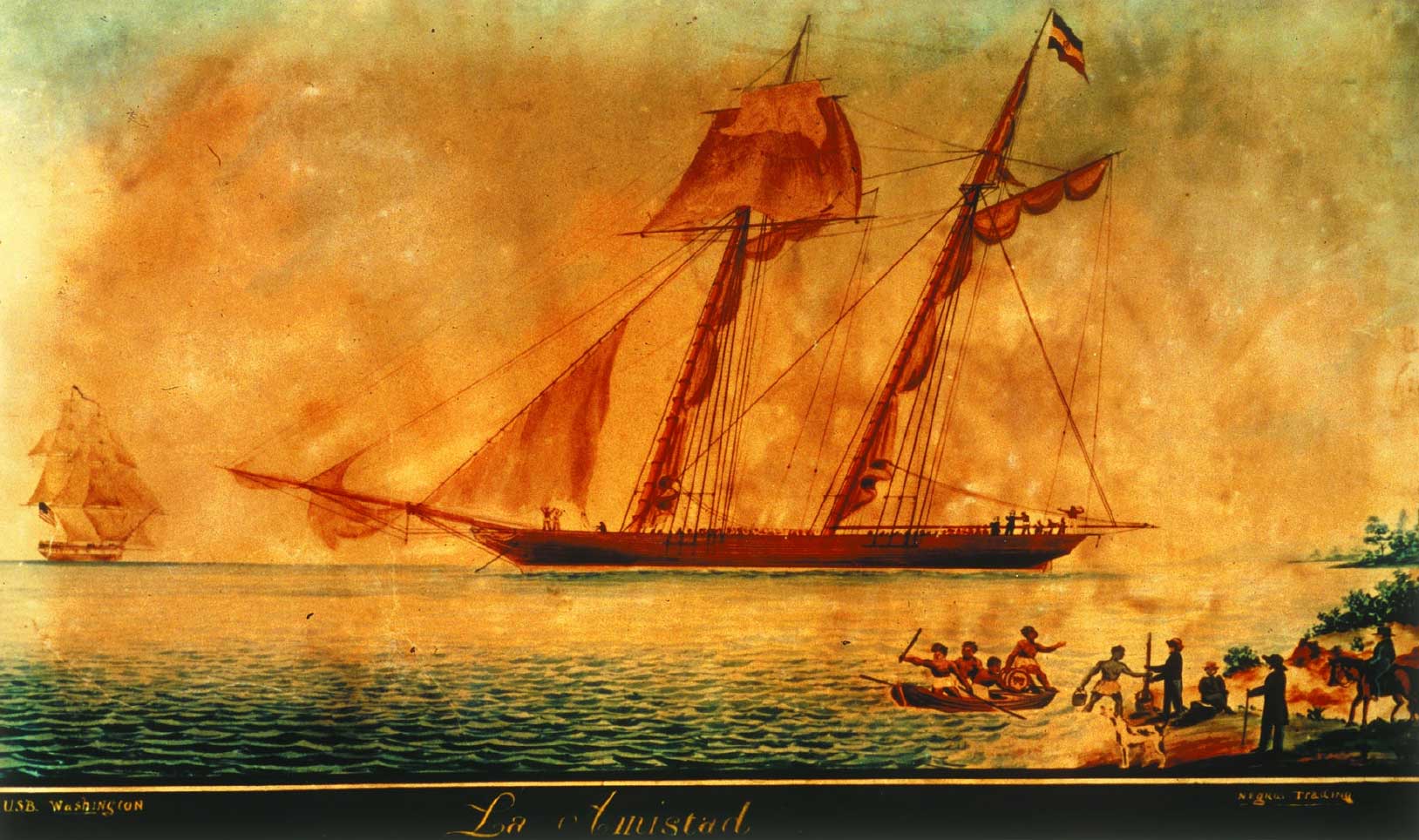1839- Amistad Slave Rebellion

In July 1839 slaves rebelled on the Spanish slaveship Amistad. They seized the ship that was eventually captured by the US navy off of Long Island. The slaves were charged with murder of the captain of the Amistad. The case rose all the way to the Supreme Court were former President Adams appeared on behalf of the former slaves. The Supreme Court freed the defendents and a year later they returned to Africa.
At 4:00 AM on July 2, 1839, 20 miles off the shore of Cuba, Cinque led a slave mutiny aboard the Spanish vessel "Amistad". They killed all but two of the crew. Instead of sailing back to Africa, the ship ended off on Long Island. There, it was captured by the USS Washington. The enslaved people were seized and imprisoned. The owners of the enslaved people began proceedings to obtain the return of their "property." Attorney Roger Baldwin was hired to defend the enslaved people. He based his argument on the fact that the enslaved people were not born in Cuba but had been kidnaped from Africa thus their slavery was illegal. According to Baldwin, the enslaved people had the "natural right" to be free; therefore, they acted in self-defense. The US government took the position that the enslaved people needed to be returned under the terms of the Pinckney Treaty.
The formerly enslaved people demanded their freedom under a writ of Habes Corpus. Associate Justice of the U.S. Supreme Court Smith Thompson denied that. He stated in his decision that it was up to the district court to decide if the enslaved people were property or not. The presiding judge in the case was Andrew T Judson. He rendered an opinion that the enslaved people had been illegally kidnapped and should be returned to Africa. The government was surprised by the decision and appealed the decision. The appeal court upheld the decision. The government then appealed the decision to the US Supreme Court. The abolitionist then requested that 73-year-old former President John Quincy Adams present the case to the court. He agreed. Adams delivered an emotional eight-hour appeal to the court asking the African be set free. Justice Story told his wife about Adams's arguments: "extraordinary for its power, for its bitter sarcasm, and its dealing with topics far beyond the records and points of discussion." The Supreme Court rendered an opinion in favor of the Africans, who were set free.
The formerly enslaved people demanded their freedom under a writ of Habes Corpus. Associate Justice of the U.S. Supreme Court Smith Thompson denied that. He stated in his decision that it was up to the district court to decide if the enslaved people were property or not. The presiding judge in the case was Andrew T Judson. He rendered an opinion that the enslaved people had been illegally kidnapped and should be returned to Africa. The government was surprised by the decision and appealed the decision. The appeal court upheld the decision. The government then appealed the decision to the US Supreme Court. The abolitionist then requested that 73-year-old former President John Quincy Adams present the case to the court. He agreed. Adams delivered an emotional eight-hour appeal to the court asking the African be set free. Justice Story told his wife about Adams's arguments: "extraordinary for its power, for its bitter sarcasm, and its dealing with topics far beyond the records and points of discussion." The Supreme Court rendered an opinion in favor of the Africans, who were set free.
 >
>